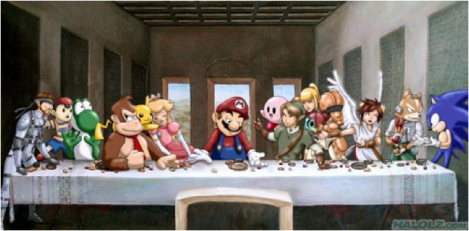
 Last week I came back from my “conference week”. Enough panels for a lifetime. A week at GDC (Game Developers Conference) in San Francisco, and a presentation at SXSW (South by Southwest) in Austin. SXSW expanded in recent years and beyond music and films it is now the Mecca of tech, start-ups and innovation.
Last week I came back from my “conference week”. Enough panels for a lifetime. A week at GDC (Game Developers Conference) in San Francisco, and a presentation at SXSW (South by Southwest) in Austin. SXSW expanded in recent years and beyond music and films it is now the Mecca of tech, start-ups and innovation.
Our panel, Games for Good, included a PETA member, where they create games to advance the cause of animal protection, a traditional-commercial game maker and myself. I wore my two hats, one as the creator of PeaceMaker and Play the News and one at the nonprofit Games for Change. In fact, I was kindly invited to replace Suzanne Seggerman, the President and Co-founder of the organization.
What are games for good? If you think about it this way, it makes a lot of sense:
1) Games are the dominant media of the 21st Century, becoming more powerful, diverse and broad in their appeal.
2) Games are also great in engaging audiences and forcing them to “lean forward” rather than consume information passively.
3) Why not use this great medium to say something about the world? Or to advance a cause? Or to convey a real-world lesson?
4) Just like Al Gore used the power of cinema, Bob Dylan used the power of music and Art Spiegelman used the power of comic books, we argue that we can use the power of games to change the world.
Not convinced? The numbers are staggering. Food Force, the game created by the United Nations already reached 10 Million players in 17 different languages. Darfur is Dying was sponsored by MTV, reached millions and drove 50K players to write letters to congress and commit other real-world actions. PeaceMaker was adapted by the Peres Center for Peace in Israel (which purchased 100,000 copies) and has been used to conduct educational workshops with thousands of Israelis and Palestinians for the past three years.
But not all was pink and good at our panel. Tough questions were presented by the audience. (a) How do you measure success? (b) Aren’t you preaching to the choir? (c) Shouldn’t you be subtler in your message, and less overt?
Some of these are great questions, which justify their blog posts in response, if not complete essays. My answers? (a) We have great data around impact assessment and we’ll get even better. (b) While some games may preach to the choir, others are really eye opening to new ideas and challenges. (c) Being overt or not is only a design decision. Both approaches could serve different agendas.
For now let’s stay with the notion that there is an amazing potential waiting to be fully realized. We are at the beginning of our journey, revealing interactive ways to express ourselves, politically, artistically, and commercially.
And if anyone is unhappy with the social impact games this community has created so far, here is a challenge for you. Come and join us — create your own masterpiece. Dig into your heart and find what you really care about. Create an interactive experience around it that will make people think, laugh or cry. We promise to contribute the blog space!
Twitter: #gamesforgood @aburak